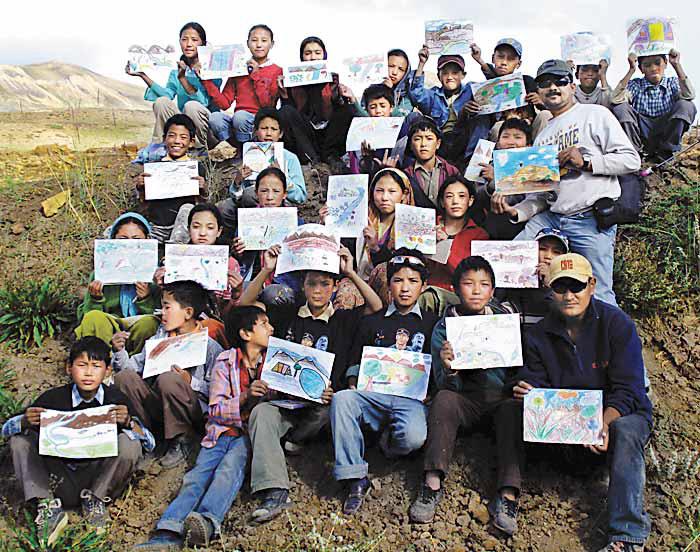Pranav Trivedi
Other projects
18 Jul 2007
Living with Snow Leopards: Wildlife Conservation through Education and Capacity Building Amongst Indigenous Communities of the Spiti Trans-Himalaya
Through a focused and systematic conservation education programme consisting of nature education camps and other outdoor activities targeting 30 schools (nearly 1,500 children and 50 teachers) in two important snow leopard habitats in the Indian Himalaya, we aim to improve their awareness and attitudes towards local wildlife, especially the endangered snow leopard and aid in its conservation.

Lack of awareness is a major issue hampering the conservation of snow leopard and other high-altitude wildlife across the Indian Himalaya. Children, the future custodians of the region’s wildlife form an important section of the local community in Spiti and Ladakh. This young generation is perhaps most influenced by their teachers, who therefore possess a high potential to bring about change. Hence, these two are important target groups for conservation education. Research on learning among children as well as observed changes in awareness levels and attitudes of children in our ongoing conservation education programme has shown that outdoor and participatory approaches ensure better learning and retention. Besides, multisensory activities promoting first-hand conact with nature are better suited to reach children with different learning styles.
In this project, we aim to -
- Provide systematic, coherent and sustained conservation education and awareness inputs in 30 schools targeting nearly 1,500 children in age groups 10-14 years and about 50 teachers.
- Conduct 10 nature education camps in which about 300 children and 20-25 teachers will participate.
- Complement the above with three around-the-campus activities entailing at least one thematic and short nature trail, one common activity for all schools around the theme of an existing environmental problem/issue of the region and one outdoor/indoor activity.
- Conduct these activities in informal, interactive and outdoor settings to promote experiential learning.
- Use the tools/resources developed by us during the pilot phase (2007-09) of the project to conduct these activities.
- Facilitate a meeting of all the coordinating HNC teachers each in Spiti and Ladakh for better planning and implementation.
Through these children, we can potentially reach roughly 1,000 families in India’s most important snow leopard habitats. It is known that children can influence their parents. So, besides generating greater awareness about conserving the snow leopard and other high-altitude wildlife among students and teachers, our interventions would also facilitate spreading of awareness to the whole community. We believe that this conservation education and awareness programme would help bring about a direct improvement in the conservation status of snow leopard, associated species and their habitats. Besides, this long-term engagement will reinforce a conservation ethic among children and strengthen our ongoing initiatives of conservation with communities.